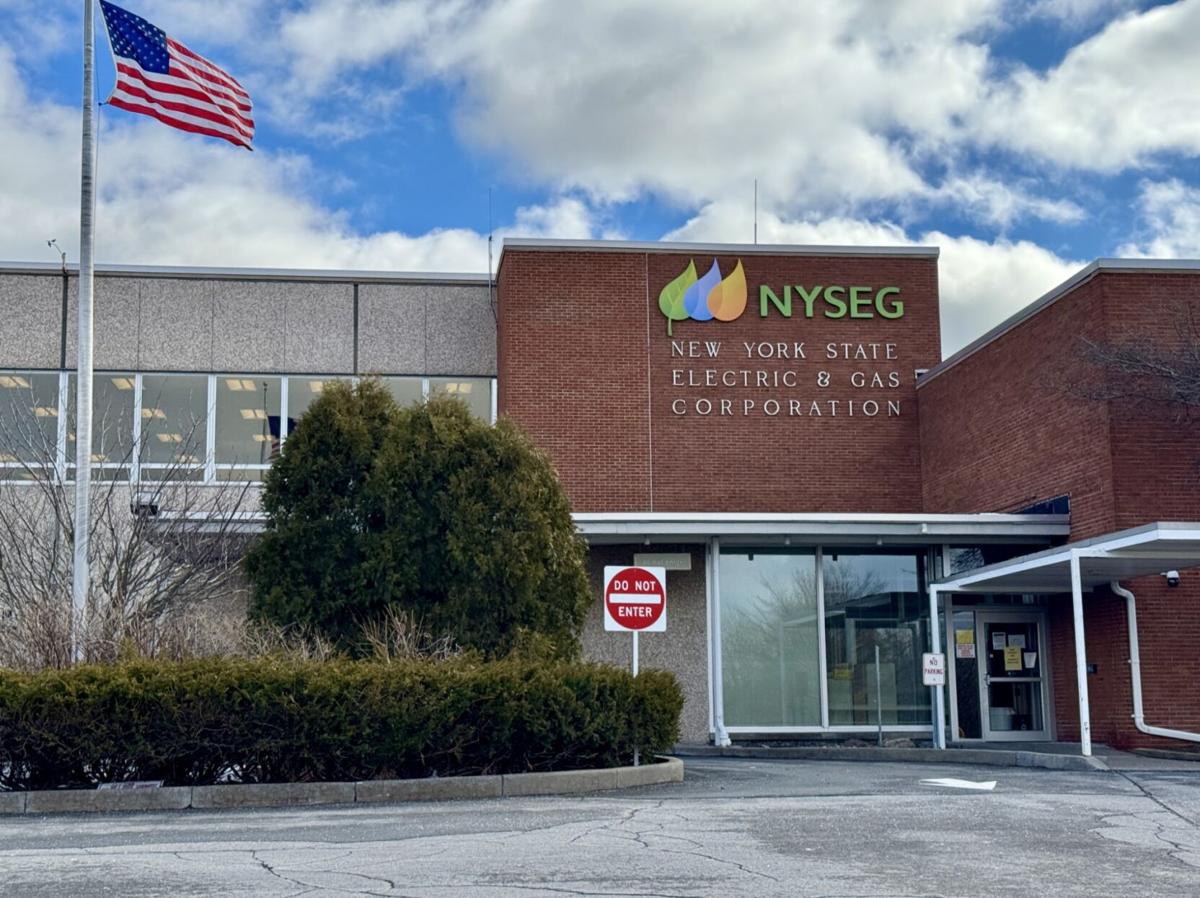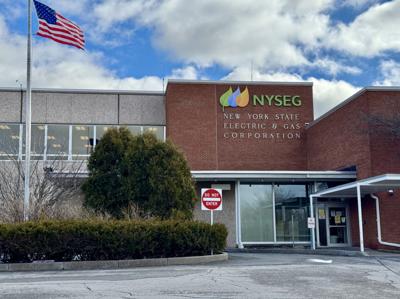AUBURN — Tom Gabak's NYSEG billing troubles began in July.
In May, the Auburn resident's bill was $315. He did not receive another bill until July, an apparent oversight by NYSEG. He paid $880.
When Gabak received his next bill, he paid $560 — and still owed $600. His most recent bill from NYSEG was for $979.
Gabak's bill could increase if the state Public Service Commission, which held a hearing at Cayuga Community College on Tuesday, approves NYSEG's proposal to raise electric and heating gas rates. According to the plan, electric bills would rise by 23.7% and gas bills would go up 33.5%. Electric bills for RG&E customers in northern Cayuga County would increase by 26%, while gas bills would jump 22.2%.
People are also reading…
A NYSEG spokesperson told ČËĘŢĐÔ˝» Tuesday that the utility company is proposing a five-year plan, which would allow the increases to be spread over a longer period. The rates outlined in the proposal are based on a one-year plan. The commission will not only decide whether to accept, reject or modify the rates, but also the duration of the plan.
For customers like Gabak, who spoke at the public hearing, the proposal goes too far.
"Please don't pass a huge rate hike," he urged the commission. "It's killing us."
Gabak wasn't alone. Several business owners and residents spoke out against NYSEG's rate plan. Among the speakers was a small business owner who said their electric bills have jumped from about $3,500 a year to $7,000. A rate increase would add to their burden.
Mark Allen, of Auburn, criticized NYSEG's use of smart meters that many customers have blamed for raising their utility bills. Allen said his usage increased by 100 kilowatt-hours after the smart meter was installed on his home.
"I don't trust it," he said.
Other speakers panned NYSEG's parent company, Iberdrola, and its U.S. subsidiary, Avangrid. Jenna Powers, a Cayuga County resident, slammed the company's business practices and labeled NYSEG and RG&E as "absolute monopolies" operating in New York. Customers, she continued, "can't choose another (energy) provider." She added that the proposed hikes favor shareholders over ratepayers.
There was an acknowledgment that the rate increases proposed by NYSEG and RG&E would finance infrastructure improvements. When the companies unveiled the rate proposal in July, they detailed the "Powering NY" plan that would be financed by the added revenue. The projects would include modernizing the electrical grid.
Cayuga County Legislator Heidi Nightengale, who represents part of Auburn, noted her district is the poorest in the county. Her constituents could pay NYSEG $800 more a year "without a choice," she added.
Nightengale was one of the elected officials who also oppose the closure of NYSEG's Auburn office. The company is planning to close three walk-in offices in Auburn, Ithaca and Oneonta due to low volume.
State Sen. Rachel May, who represents Cayuga County, said her office receives a lot of complaints about NYSEG. They usually direct constituents to NYSEG's Auburn office, which is open two days a week.
"We don't know what we will do now if they are closing that office," May said.
Although NYSEG says a vast majority of customer transactions are completed online or by phone, there are some residents who still use the local office.
Mike Giacolone, of Auburn, has visited the office when he's had billing issues.
"What am I supposed to do if you're going to close the offices?" he said. (The closest NYSEG office is in Geneva.)
Two administrative law judges led the hearing on behalf of the state Public Service Commission. They gathered the feedback during the hour-long hearing and will relay the comments to the commissioners.
According to the commission's estimated timeline, the state Department of Public Service staff and any intervening parties will have four months for discovery and to file testimony. Rebuttals can be filed three weeks after intervening parties submit their testimony. Hearings are held roughly six months after the filing date, which was June 30.
Meanwhile, the commission is holding public hearings on the proposed NYSEG and RG&E rate hikes.
In Auburn, the first speaker set the tone at the public hearing. Diana Daeffler questioned how the proposed rate increases would affect seniors and working class customers.
"We don't get any discounts," she said. "I personally think these rates are atrocious. I'm going to be retiring in a couple of years and I don't want to work for my gas and electric bill."
Government reporter Robert Harding can be reached at (315) 282-2220 or robert.harding@lee.net. Follow him on X @RobertHarding.


















